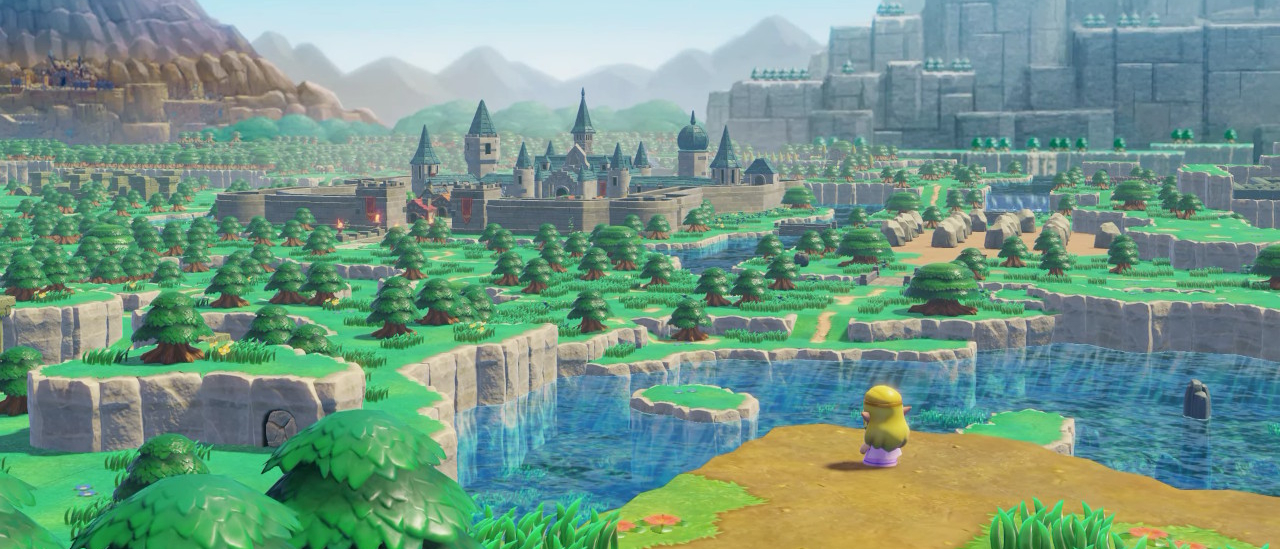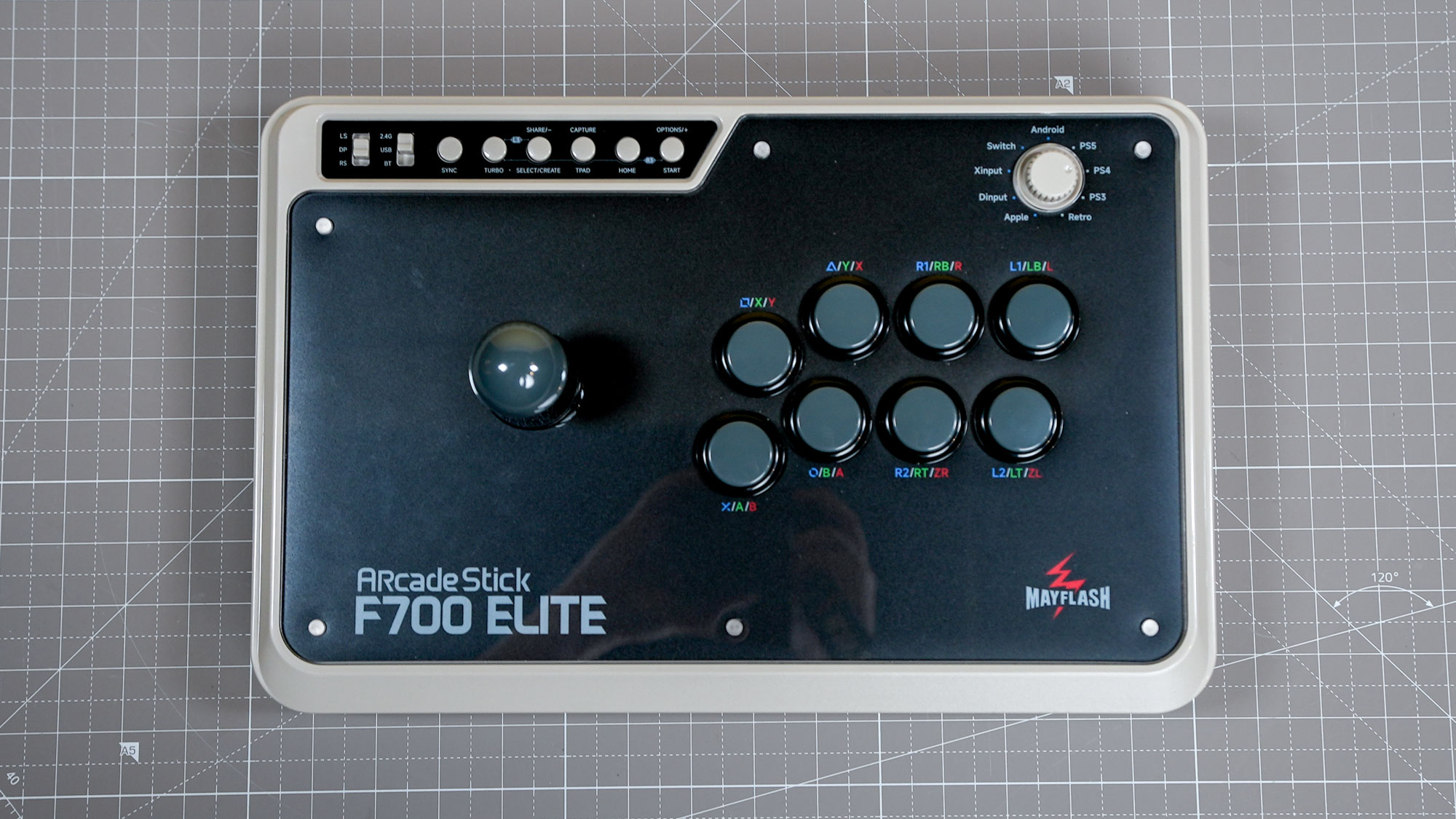Tom's Guide Verdict
The Legend of Zelda: Echoes of Wisdom is a surprisingly substantial top-down Zelda with the slap-things together puzzle-solving spirit of Tears of the Kingdom, though its new ideas sometimes get in the way of the fun.
Pros
- +
Adorable art style
- +
Dense overworld stuffed with things to do
- +
Plenty of puzzles and new ideas
Cons
- -
Combat is a real drag
- -
Clunky "Echo" menu system
- -
Some occasional performance issues
Why you can trust Tom's Guide
Platforms: Nintendo Switch (reviewed)
Price: $59
Release Date: September 26, 2024
Genre: Action-Adventure
With The Legend of Zelda: Echoes of Wisdom, Nintendo has done the unthinkable: actually made Princess Zelda the star of her own long-running franchise. Yes, in this latest Nintendo Switch Zelda title — which has somehow landed before the Nintendo Switch 2 — Link is the one who needs rescuing after he (and half of Hyrule) are sucked into a series of rifts that spring up throughout the realm.
To save her kingdom, Zelda sets off with an adorable sidekick called Tri and makes use of a suite of new abilities to navigate the world and take on the many threats that lie in wait.
In practice, this means Nintendo and developer Grezzo have dreamt up an experimental new take on the series that combines some of the latest ideas from the series with some of the elements franchise veterans might have been missing: think classic dungeons, pieces of heart, and so on.
Through a combination of old and new ideas — most prominently, the structure, art style, overhead perspective, and 2D elements of the Link’s Awakening remake and Tears of the Kingdom’s malleable, Fuse-things-together-and-hope-they-work approach to puzzle-solving — Echoes of Wisdom becomes a mostly successful Nintendo Switch title.
Trying to decide whether to buy Zelda’s first solo adventure? Read my full The Legend of Zelda: Echoes of Wisdom review to find out whether it’s worth playing.
The Legend of Zelda: Echoes of Wisdom — The Basics
What is it? The latest entry into the long-running Legend of Zelda Nintendo series, Echoes of Wisdom sees players taking the titular princess on her first proper adventure, using “Echoes” to traverse Hyrule, exploring dungeons, fighting bosses and closing “rifts” to track down the missing hero, Link, and save the kingdom.
Who is it for? Action-adventure fans with a penchant for light puzzle-solving, and both long-time Zelda fans and newcomers to the franchise alike.
Get instant access to breaking news, the hottest reviews, great deals and helpful tips.
What’s the price? The Legend of Zelda: Echoes of Wisdom costs $59 at launch. To commemorate the launch, Nintendo also released a limited-edition themed Switch Lite (the Nintendo Switch Lite: Hyrule Edition), which costs $209 and comes with a 12-month Nintendo Switch Online + Expansion Pack Individual Membership (but not Echoes of Wisdom).
What other games has the developer made? Nintendo likely needs no introduction: they’re the powerhouse behind Mario, Metroid, Zelda, and countless other titles, but Echoes of Wisdom was also co-developed by Grezzo, who also handled Miitopia, the Switch remake of The Legend of Zelda: Link’s Awakening, the 3DS remake of Luigi’s Mansion, The Legend of Zelda: Ocarina of Time 3D and Majora’s Mask 3D, and Ever Oasis.
What games is it similar to? It's a new take on the other top-down Zelda titles, so has similarities to games like The Minish Cap, A Link to the Past, Link's Awakening, and A Link Between Worlds, but other adventure games like Tunic or A Short Hike are apt comparisons, too.
New protagonist, new tricks
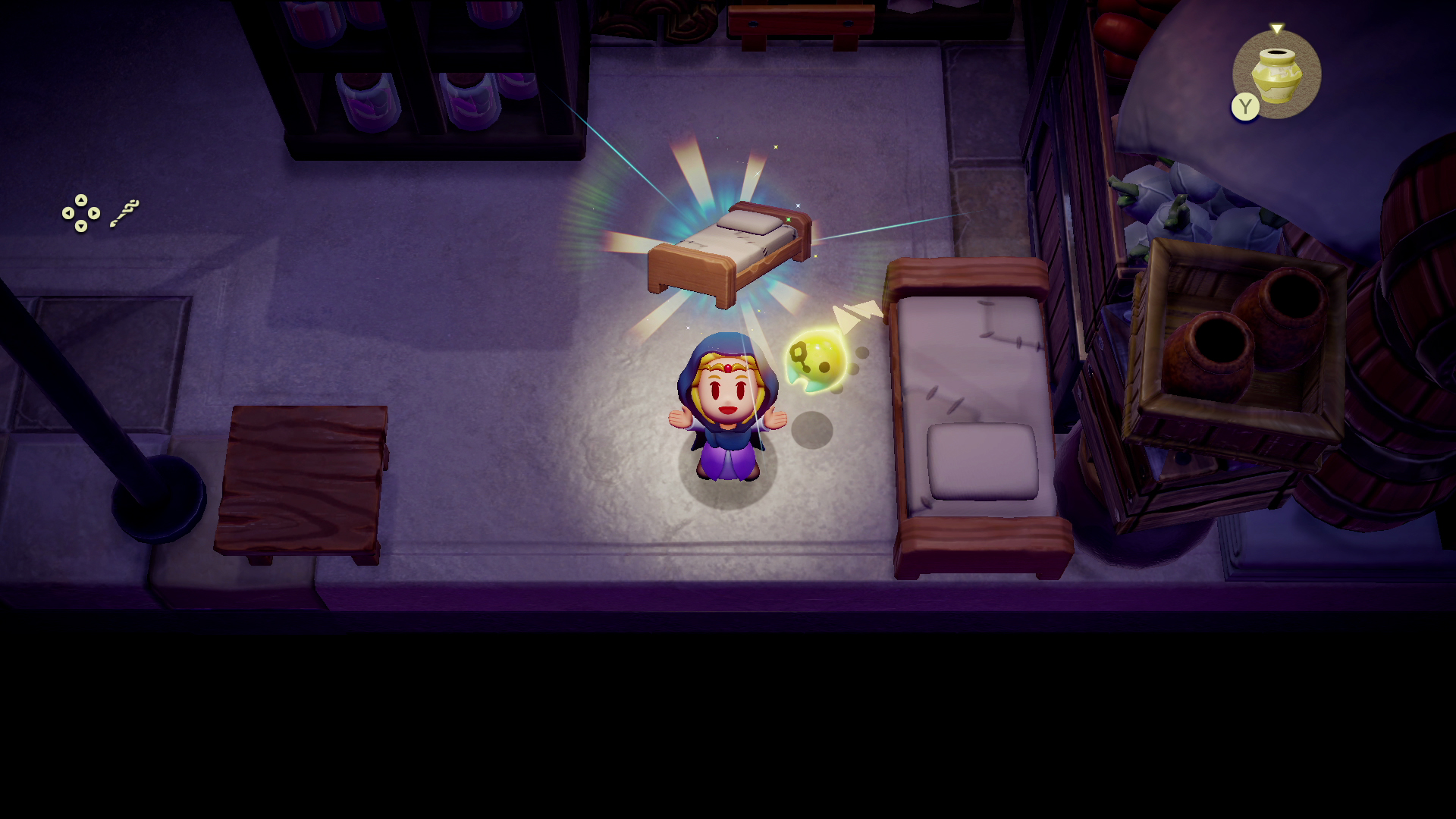
The big new mechanic here is the Echo system; with her staff, Zelda can summon imitations of enemies and objects from throughout Hyrule to help get around the world or tackle enemies on her behalf.
Zelda’s floating companion Tri also offers her the “Bind” power, allowing Zelda to manipulate items from a distance, or to latch onto objects and follow them around using “Reverse Bind”.
On paper, it sounds like a super free-form system, but the way Echoes are implemented often gets in the way of the fun. You can only ever summon a set number of Echoes at once (up to three at the outset, though this number expands across your adventure), and different Echoes have different values.
For example, at the start of your journey, you can summon up to three tables as temporary ledges, but only one Darknut soldier to swing an axe at your foes. I appreciate this is likely to prevent players from being overwhelmed, but the restrictions feel a bit too limiting.
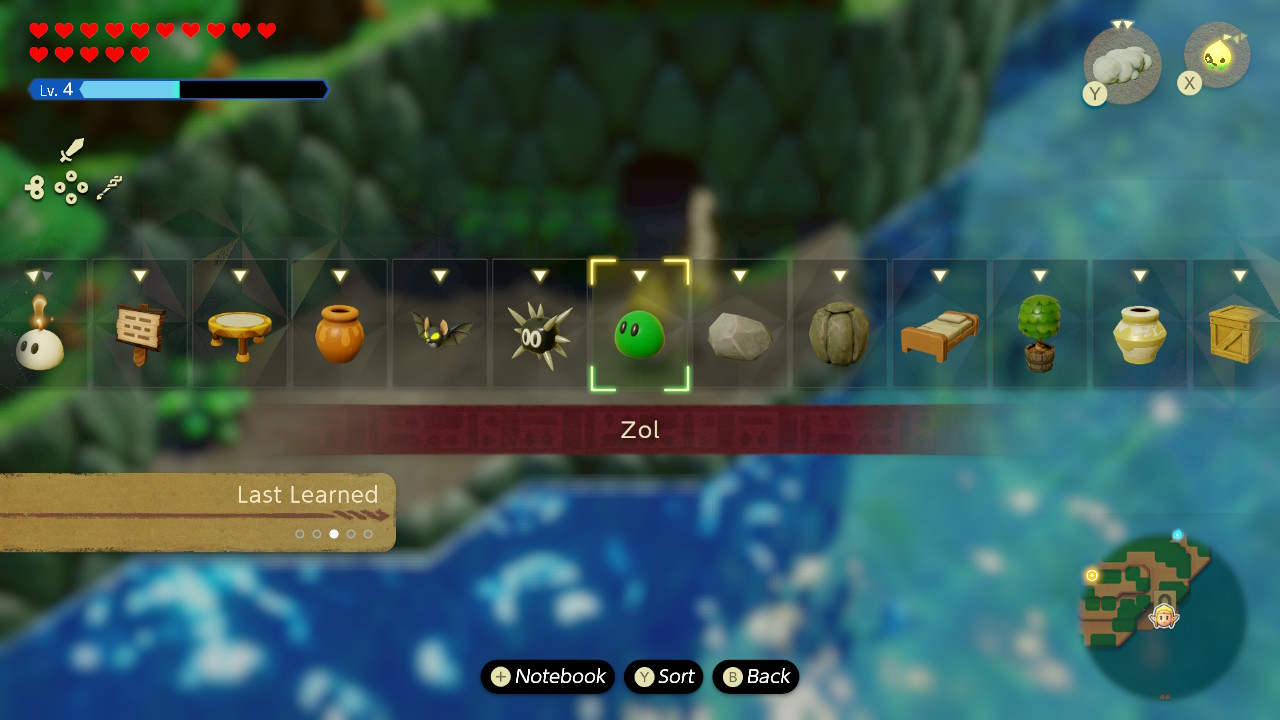
Further problems come with the fact that there are more than 120 Echoes available in the game, but to select one, the most reliable system is to hold a button down and scroll through each individually. And either I’m just not as creative or experimental a Zelda player as I first thought or lots of Echoes just aren’t that useful. Several are either aesthetic duplicates, elemental swaps, or leveled-up versions of the same monsters you’d already cloned once before.
Sure, the game is densely packed with puzzles in dungeons and the overworld that demand you liberally deploy Echoes, but I can confidently say that there are plenty I never used during my 20+ hours of playtime. The whole system might have suited the game's origins as a dungeon-builder game, but isn't quite as user-friendly as a core gameplay mechanic. It makes Echoes of Wisdom a unique Legend of Zelda experience, but the whole system just feels clunkier than it should given it’s the primary hook of the game.
Not quite a cut above
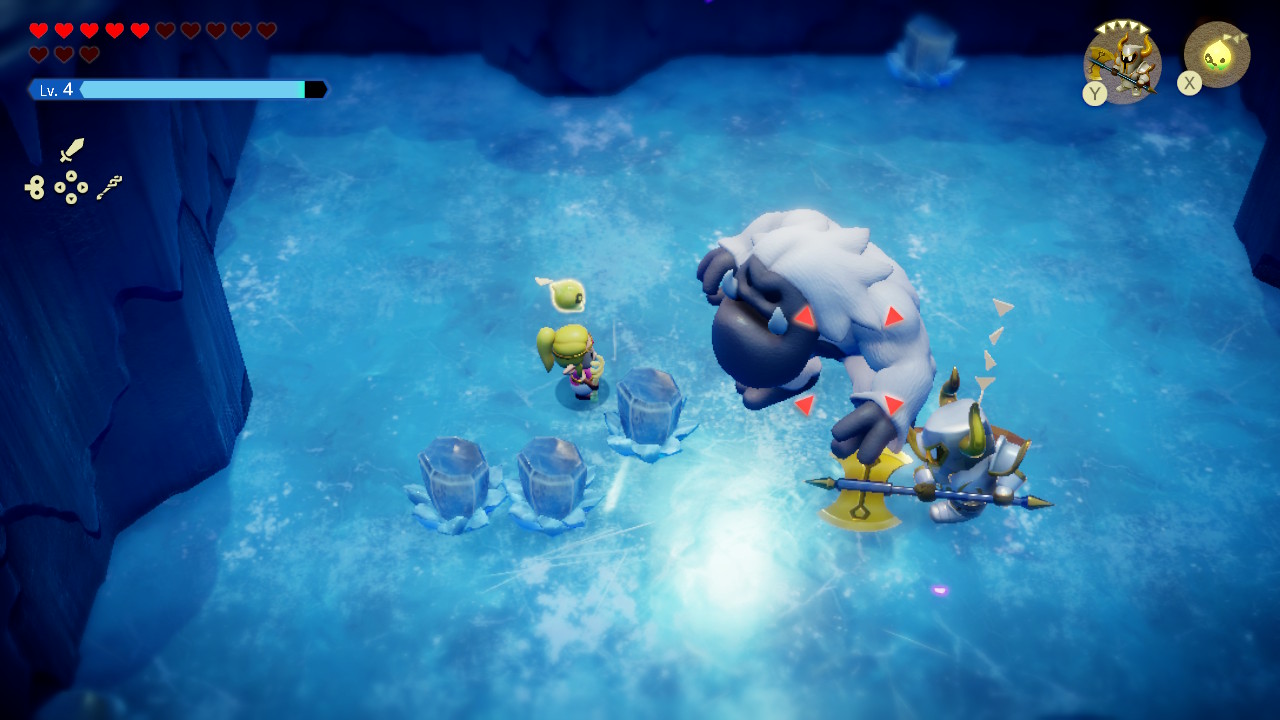
I mentioned combat was the game’s weakest area, and I wasn’t kidding; I soon found myself avoiding enemy encounters wherever possible and instead just running past them.
In any other Zelda title, Link’s decked out with a sizeable arsenal of weapons and gadgets, but here, you don’t really have any offensive capabilities of your own, aside from your Echoes. That is, until you enter “Swordfighter Mode”.
Once unlocked, pushing up on the D-Pad puts Zelda in a temporary state wherein she can don the Hero of Hyrule’s traditional sword and shield, and make use of some other parts of Link’s arsenal. Whilst it sounds like the perfect temporary buff to get you out of a sticky situation, because it’s limited to a meter, you can rarely use it outside of boss fights or specific sections of temples and rifts where you’ll get drops that refill a very small chunk of that same meter.
Unfortunately, this means that a lot of Echoes of Wisdom’s combat boils down to spawning Echo monsters and waiting for them to duke it out, or trying to find things like rocks or pots to lob at foes. And if your Swordfighter meter runs out during a boss battle, and you don’t have any consumables to hand to replenish it … prepare for these unremarkable brawls to outstay their welcome.
Yes, I know you could spend ages either grinding out rupees to buy stacks of potions from Hyrule’s stores or getting carpal tunnel by clicking through menus to make smoothies, but I shouldn’t need to do this much admin to make use of all the tools at my disposal. My advice? Bag as many Might Stones as you can and upgrade the Swordfighter Mode meter ASAP, and be sure to grind through Kakariko Village’s Slumber Dojo when you can; the items you’ll get there will vastly improve your combat experience.
A world that Hy-rules
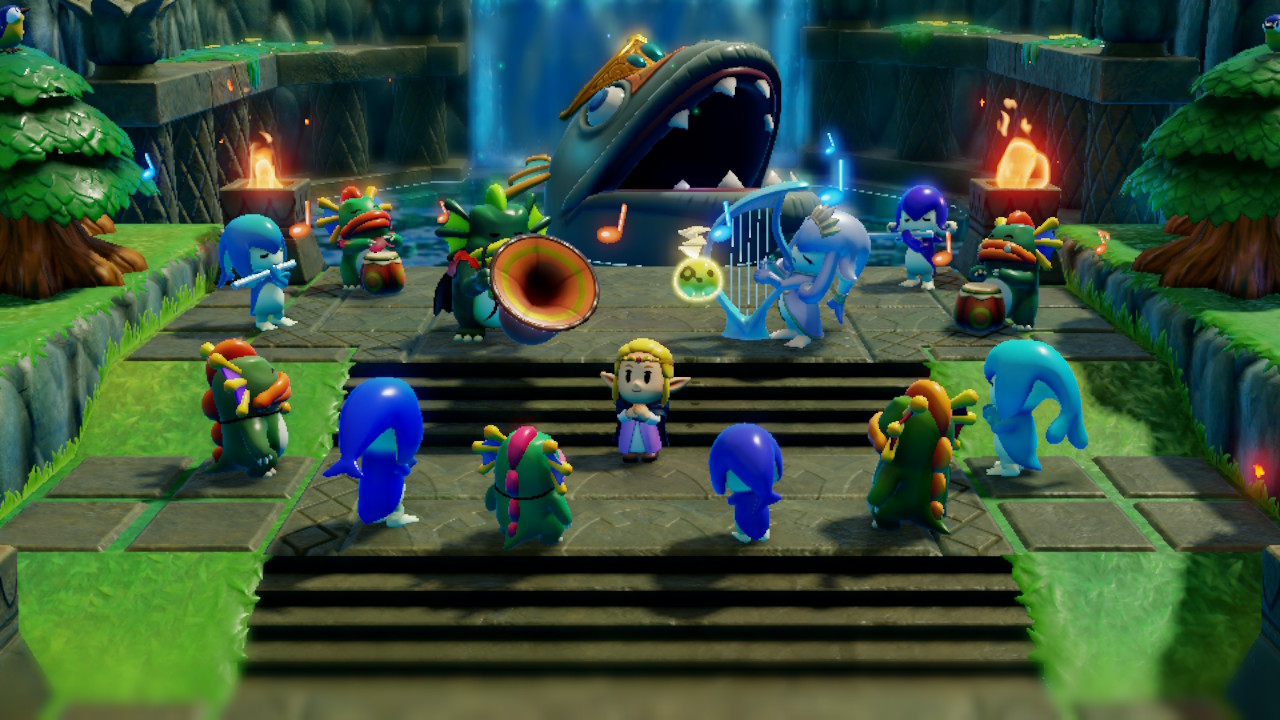
I realize that I’ve spent a lot of time complaining about Echoes of Wisdom so far but, to be clear, I did genuinely enjoy working my way through the world.
The colorful, toybox art style is incredibly appealing, the music is, as you’d expect from a Zelda title, delightful, and the whole adventure has bags of personality. Plus, I was really impressed by how much the developers packed into such a dinky version of Hyrule. If you felt intimidated by the vast expanses of Breath of the Wild or Tears of the Kingdom, you'll find this kingdom far more approachable.
Along with the many temples and rifts you’ll journey through on your critical path, there’s an impressive amount of side content to tackle. Throughout Hyrule, you’ll find plenty of side quests, optional mini-dungeons, and bosses, plus pieces of heart to hunt down, Stamp Rally points to find, minigames, and more to keep you busy long beyond besting the final boss. If
My only other gripe here is that, very occasionally, I experienced some frame drops when things got a tad busy on-screen, and I can’t help but feel that Grezzo could have cut down on the number of cutscenes or at least let me skip through dialogue a bit faster. They frequently felt like they just slowed the pace of the adventure without being entertaining enough to keep my attention.
The Legend of Zelda: Echoes of Wisdom — Verdict
Overall, I’m left feeling like The Legend of Zelda: Echoes of Wisdom is a solid foot forward, even if the team didn’t quite nail the implementation of their new ideas.
I really did enjoy racing through Hyrule. Echoes of Wisdom looks lovely, the puzzles are never too obtuse, and its open world is stacked with stuff to do beyond the golden path. It feels like a balance of new concepts and some old ideas that franchise veterans might have been missing in the latest two Zelda games.
It’s just a shame that the new systems are a tad clunky, and you’re hobbled by cutscenes and a lot of waiting around that get in the way of seeing more of the world around you.
Martin is a Streaming Writer at Tom’s Guide, covering all things movies and TV. If it’s in the theaters or available to stream somewhere, he’s probably watched it… especially if it has a dragon in it. Before joining the team, he was a Staff Writer at What To Watch where he wrote about a broad range of shows that stretched from "Doctor Who" and "The Witcher" to "Bridgerton" and "Love Island". When he’s not watching the next must-see movie or show, he’s probably still in front of a screen playing massive RPGs, reading, spending a fortune on TCGs, or watching the NFL.
